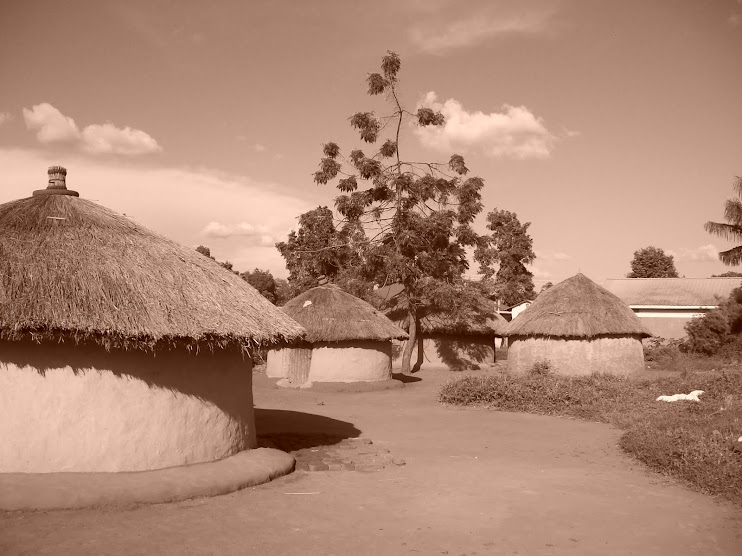




So far they are estimating over 5,000 displaced families, 300+ dead and 200+ orphans left in the wake of the recent mudslides of Baduda district. Many P.C. volunteers have gone to the site to do what they can to help the Ugandan Red Cross in their efforts in assisting those who have been affected by this disaster.
As volunteers we were not allowed to work at the site of the mudslide, because of the inherent danger in that work. We were there in a support capacity in the IDP (internally displaced persons) camp that was set up by the UN. Our duties included the organization of donated materials coming into the camp, registration of families/orphans that were coming in to camp from the mountains, construction of latrines and bathing areas as well as food distribution.
Disaster relief is an amazing thing in the fact that you have to mobilize so many entities from all over to assist these people that have lost everything. Things rarely run smoothly, people from different relief organizations are rarely on the same page, but you pull together and make it work. It is exhausting both physically and emotionally...but is an amazing experience. It is a good feeling to be working alongside Ugandans in the interest of helping those from the surrounding mountains.
In a couple of the pictures you see kids helping in moving donations...most likely these kids have just lost it all (possibly their entire families) and they are so excited to be helping us out in any way they can. The boy at the top followed us for three days, often holding my hand as we moved around camp. He's flexing for me to show how strong he is while he moves tarps for me, very cute kid.
On the first distribution day people received the following items (quantity depending on family size): blankets, wash buckets, bar soap, cooking pots, 3 liters bottled water, 1 kilo beans per member, 1 kilo posho flour (makes local bread) and a handful of potatoes. Trying to do this in a streamlined manner for so many hungry people is an extremely complicated process. Imagine trying to keep 300+ people in an organized line in 90 degree temperatures that want nothing more than to get something to eat.
On the second day a group of us spent a majority of the day digging pit latrines and creating hand washing stations to try and curb the spread of disease and bacteria. The displaced families have been using the river that runs right behind their camp for bathing, cleaning clothes, toilet and anything else you might need water for. I walked around many piles of human feces while there...so a major issue is going to convince all of these villagers that in such a confined space sanitation is going to be key in their future health.
There is at this point no plan on what to do with the displaced. It is my concern that they will be stuck in this camp for months to come as they struggle to clean the disaster area. In the coming months i'm sure I will make return trips to assist in any way they will need.
We stayed in a hostel that was being "managed" by a girl from Wisconsin that is teaching up in that area. There also was a freelance photographer from Germany staying and we all sat around at night talking and playing Cranium. A really nice stress reliever after frustrating days of work in the camp.
Still a lot of work to be done down in those mountains, but this is just the beginning and hopefully with continued help and support we can get things on track.
